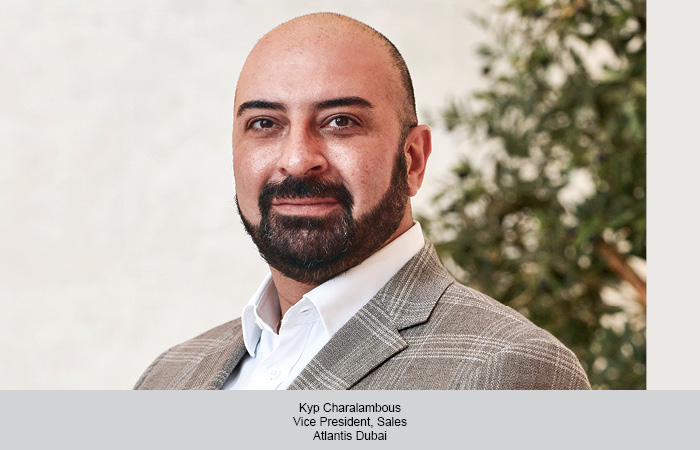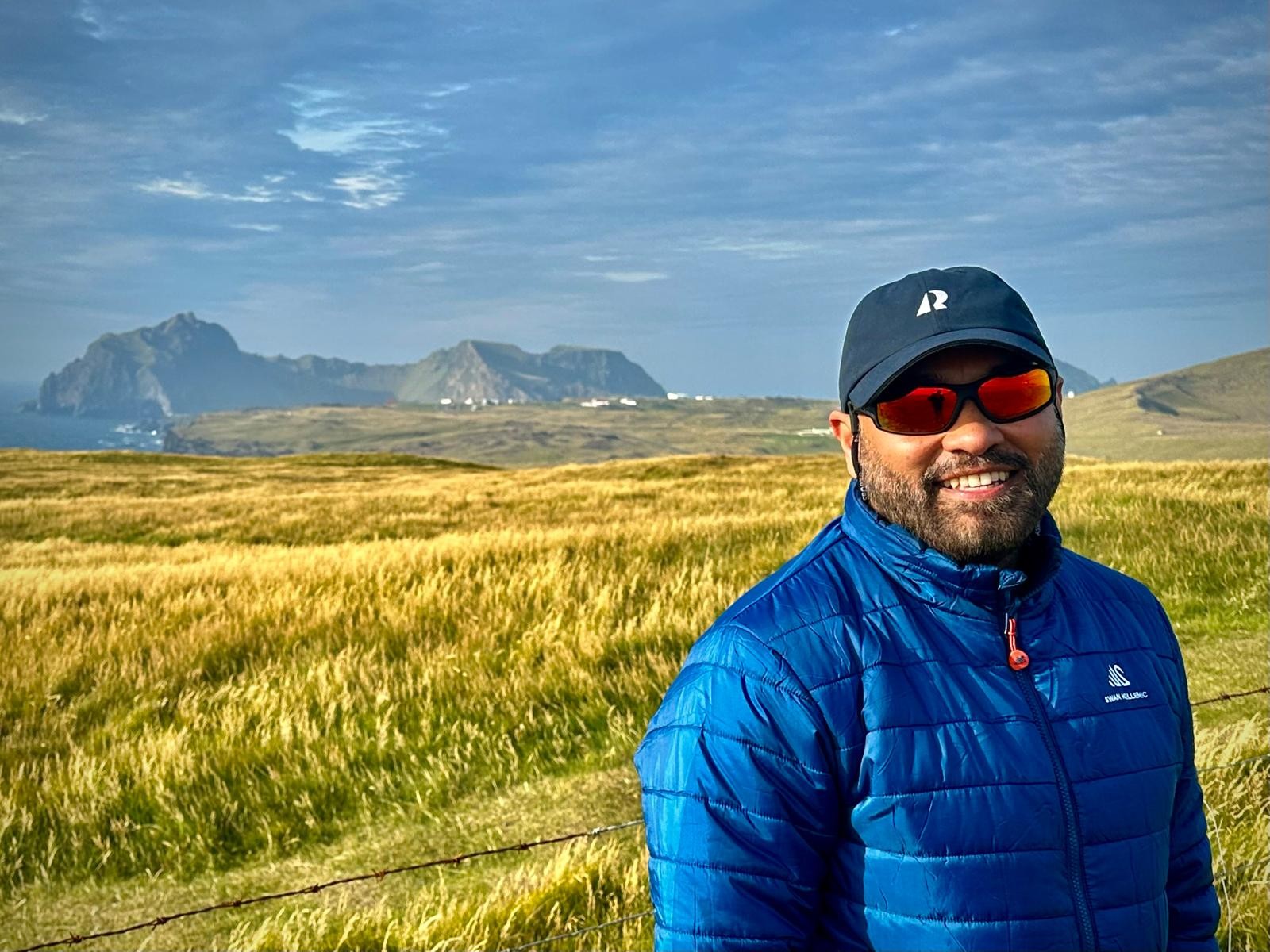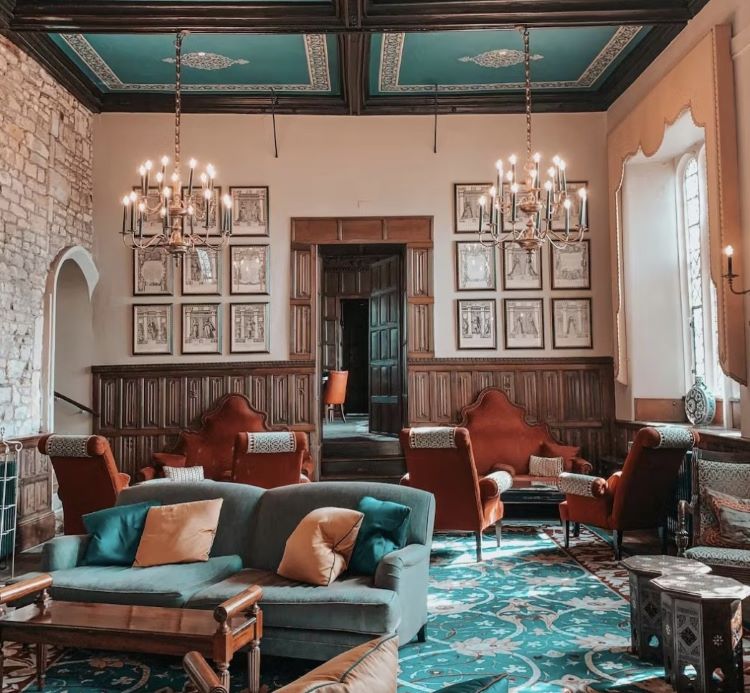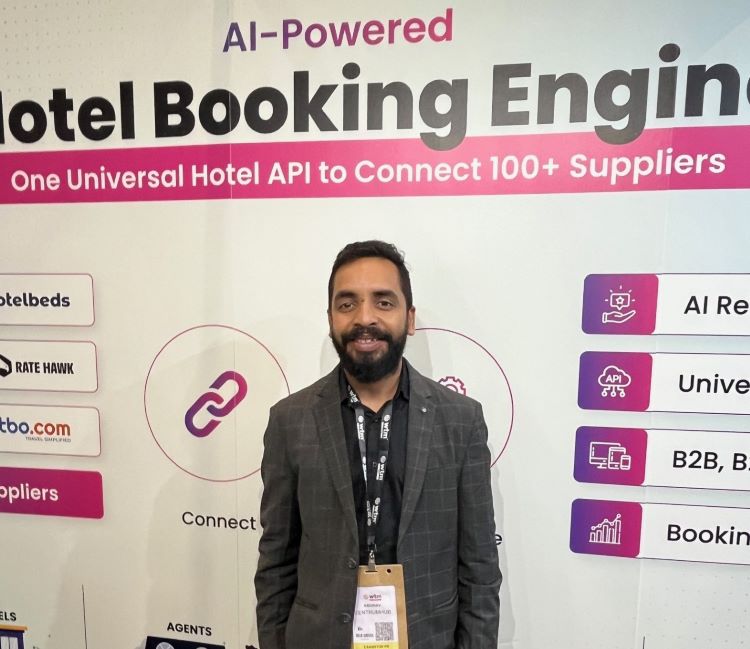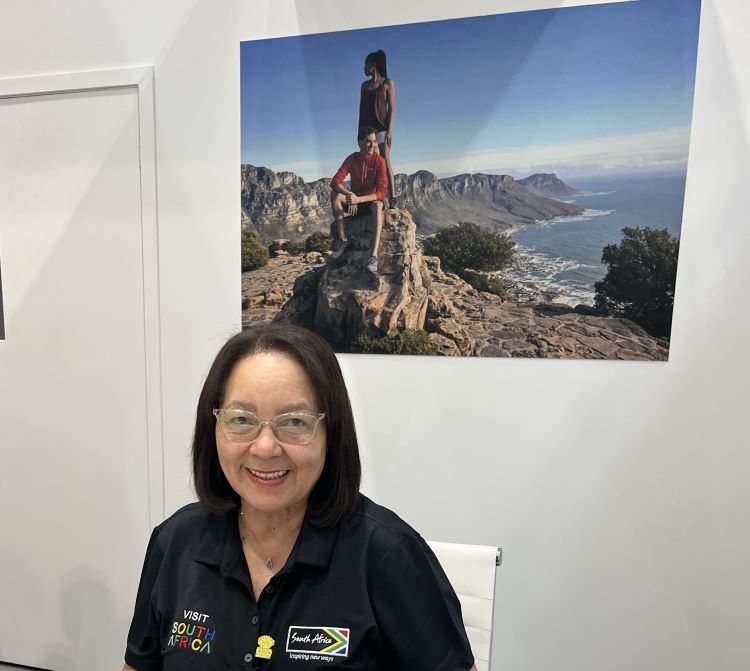In an exclusive interview with TRAVTALK, Kyp Charalambous, Vice President of Sales, Atlantis Dubai, shares the strategies and initiatives driving the resort’s success in the Indian market. Charalambous sheds light on the importance of the Indian market, trade partnerships, and the innovative strategies employed to maintain and enhance their presence.
TT Bureau
Trade partners are key to the business model of Atlantis Dubai. “These partnerships drive success, facilitate growth, and ensure mutual benefits. At Atlantis, we take pride in our strong, in-depth, and long-standing relationships with the partners we work with,” says Kyp Charalambous, Vice President of Sales, Atlantis Dubai. This commitment to building and maintaining robust trade relationships is a cornerstone of Atlantis’ strategy. The opening of Atlantis The Royal marks a significant evolution for the brand, positioning it as an ultra-luxury resort. “We collaborate with high-end travel designers to bring our product to the market. Our approach focuses on quality over quantity, ensuring deeper, more meaningful engagements with our partners,” he says.
Indian trade marketing strategy
Maintaining a consistent presence in the Indian market is paramount for Atlantis Dubai. “Our trade marketing strategy is integral to driving sales from India,” says Charalambous. “We focus not only on tier-I cities but also on emerging niche markets,” he adds.
Atlantis Dubai has implemented an integrated trade marketing strategy to attract Indian travellers to their resorts.
The Indian audience: A key pillar
Indian guests have been an integral part of Atlantis Dubai’s success for over 15 years. “Indian travellers significantly contribute to our rooms and signature suites, world-class culinary offerings, unique marine and water park activities, and large-scale weddings,” underlines Charalambous. Approximately 60 per cent of their business from India comes from the Indian trade sector, including travel agents and tour operators. The remaining 40 per cent is driven by direct group bookings for weddings, highlighting the importance of these segments in their business model.
Evolving travel patterns
Charalambous identifies Mumbai, Delhi NCR, and Ahmedabad as key cities for their business growth. Additionally, businesses from Chandigarh, Ludhiana, Jaipur, and Pune have developed well, showcasing a broadening reach across the country. The pandemic has influenced travel patterns. “Indian travellers have taken greater control over their holiday decisions. They now have a better understanding of Dubai as a destination and are confident in independently booking trips,” he observes. Post-pandemic, the length of stays has increased, with a noticeable trend of multi-generational families travelling together, emphasising family togetherness and creating lifetime memories, he shares.
Culinary excellence
Atlantis The Royal prides itself on its diverse culinary offerings. “We have gathered some of the finest chefs in the world to offer a dining experience like no other,” says Charalambous. Local ingredients play a significant role, in supporting local industries and ensuring sustainability. “We cater to all dietary needs, from vegan to sugar-free and dairy-free options,” he adds.
Future trends
Looking ahead, Charalambous foresees a blend of personalised experiences, sustainable practices, and technological innovation shaping the future of luxury hospitality. “We remain focused on creating exceptional experiences for guests and maintaining our position as a global leader,” he concludes.
 TravTalk India Online Magazine
TravTalk India Online Magazine

